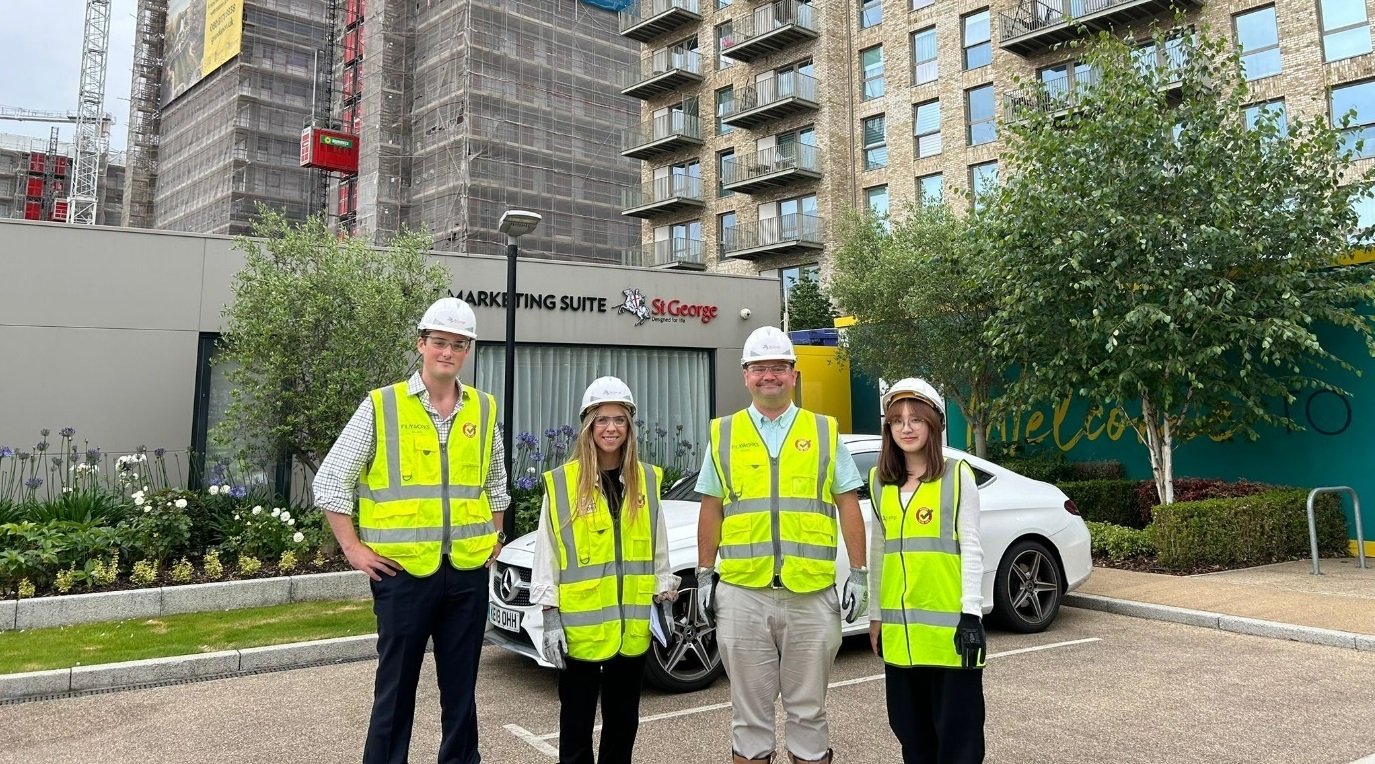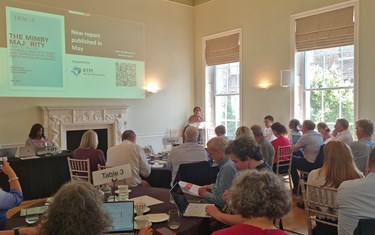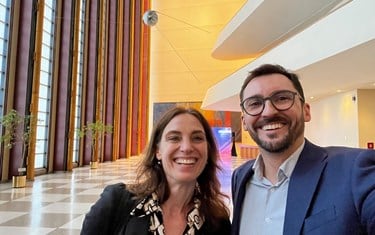Charles Goode is an Assistant Professor in Urban and Regional Planning in the School of Geography at the University of Birmingham. His research and teaching interests focus on strategic planning, post-Covid urban centres and Green Belt/green infrastructure. As well as a recipient of an Early Career Researcher grant, he is a member of the RTPI West Midlands Regional Activities Committee and the Young Planners Committee.
A key challenge of being Early Career Academic is securing research funding. It is challenging to find research funding which supports practice-focused, policy-applied research, and applications can take up a lot of valuable time. Practice-focused research is obviously very important in planning, and is where the RTPI’s Early Career Research grant (ECR), of which I am a recipient, is so useful.
Although I am working towards a larger, interdisciplinary grant application, securing smaller grants is a vital stepping stone for me as an Early Career Academic, including building research credibility. My ECR grant, Young People’s Attitudes Towards Car Dependency and Development: A Comparative Study of Inner-City and Rural-Urban Fringe Housing Projects in London and the West Midlands, has allowed me to hire an excellent Research Assistant, Audrey Chan, who has been very helpful with data collection. The ECR grant is also more accessible than typical Research Council grants with a streamlined application process.

Audrey Chan and Charles Goode on a site visit to Grand Union, Brent. The tour was led by St George including
India Moynihan, Land and Planning Manager.
Reflecting on the project now that the majority of data collection is complete, there have been a range of benefits:
- Research that is practice-informed and policy relevant: My ECR grant is funded by RTPI London and West Midlands with a research project focusing on young people’s (aged 18-30) attitudes towards driving and car dependency and housing preferences. One of things that I have most enjoyed about the project has been the site visits to development sites including to (in Birmingham) Soho Wharf, Icknield Port Loop, Langley Sustainable Urban Extension and (in London) Meridian Water and Grand Union. It was great to have a hard-hat tour of Grand Union including a ride in a construction lift as well as exploring Berkeley Group’s well-known site models (as seen in the picture)! More broadly, it has been very interesting working on a topic which is under-researched yet of great interest to practice and very relevant to policy. Drawing upon my network and bringing together a range of professionals from the development industry, local and national government and transport/engineering professionals has developed productive discussions and widely discussed findings.
- The ECR grant provides experience of running research projects: Contemporary academic research involves a mixture of collaborative and individual projects. This ECR grant is now my second research project with me as Principal Investigator, and I have been part of a research team at the University of Birmingham on a project on the Commonwealth Games. I enjoy being part of larger, interdisciplinary research teams and grant applications but, in terms of academic leadership and demonstrating research credibility, developing and running individual research projects is vital. In three months, Audrey and I have run 4 well attended focus groups, done 20 interviews, conducted 3 questionnaires, analysed secondary datasets and been on a range of site visits in London and Birmingham. The whole experience of recruiting and interviewing a Research Assistant, developing research questions, carrying out data collection alongside organising dissemination events, writing reports and influencing policy, will be extremely useful to my future career.
- The ECR grant is helping me to develop my research profile as an academic: I have two core and interlocking research interests. Firstly, the Green Belt, strategic planning, housing markets and community involvement in planning. Secondly, urban greening, green infrastructure and the post-Covid repurposing of urban centres. The ECR grant blends these two research interests with, for example, one of the case studies, Langley Sustainable Urban Extension being in the Green Belt but, more broadly, data is being collected on people’s post-Covid housing preferences and strategic planning is emerging as an important finding. Indeed, the ECR grant is contributing to a significant post-Covid dataset which will result in further publications.
- The ECR grant demonstrates my ability to attract industry funding: whilst the majority of research funding comes from Research Councils, industry funding is becoming increasingly important to support academic research. Demonstrating the ability to attract and run industry-focused projects is therefore increasingly important to academics, underlining another benefit of the ECR grant, which is externally funded by the RTPI with co-development and co-design of the research project. The experience of this project is already leading to discussions with industry about further research projects.
It is important to underline the broader importance of the RTPI’s ECR grant, both in funding policy-applied research which is directly relevant to the profession, but also in supporting the development of the research profile and career development of Early Career Academics.
Apply today
The Early Career Research Grant aims to support PhD students or researchers within five years of receiving their PhDs to gain experience of leading research projects that have an impact on planning practice and/or planning policy. Applications are now open.


